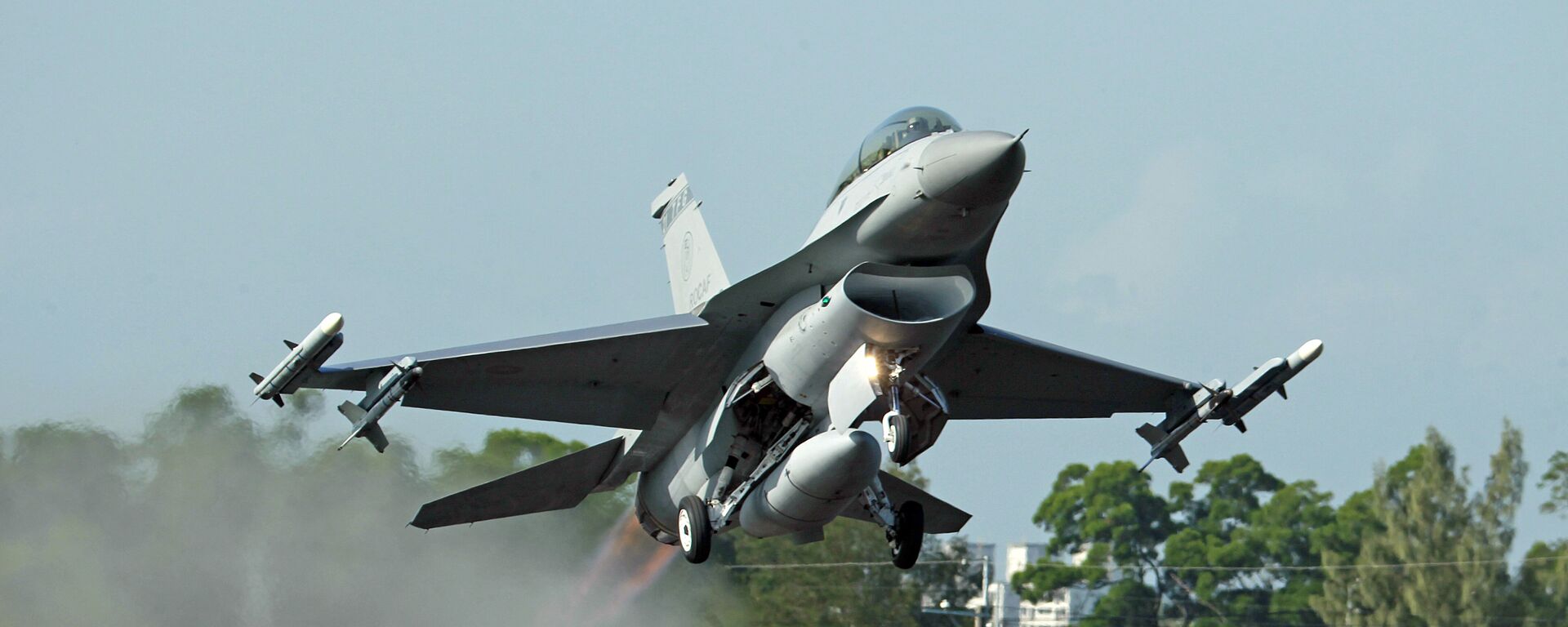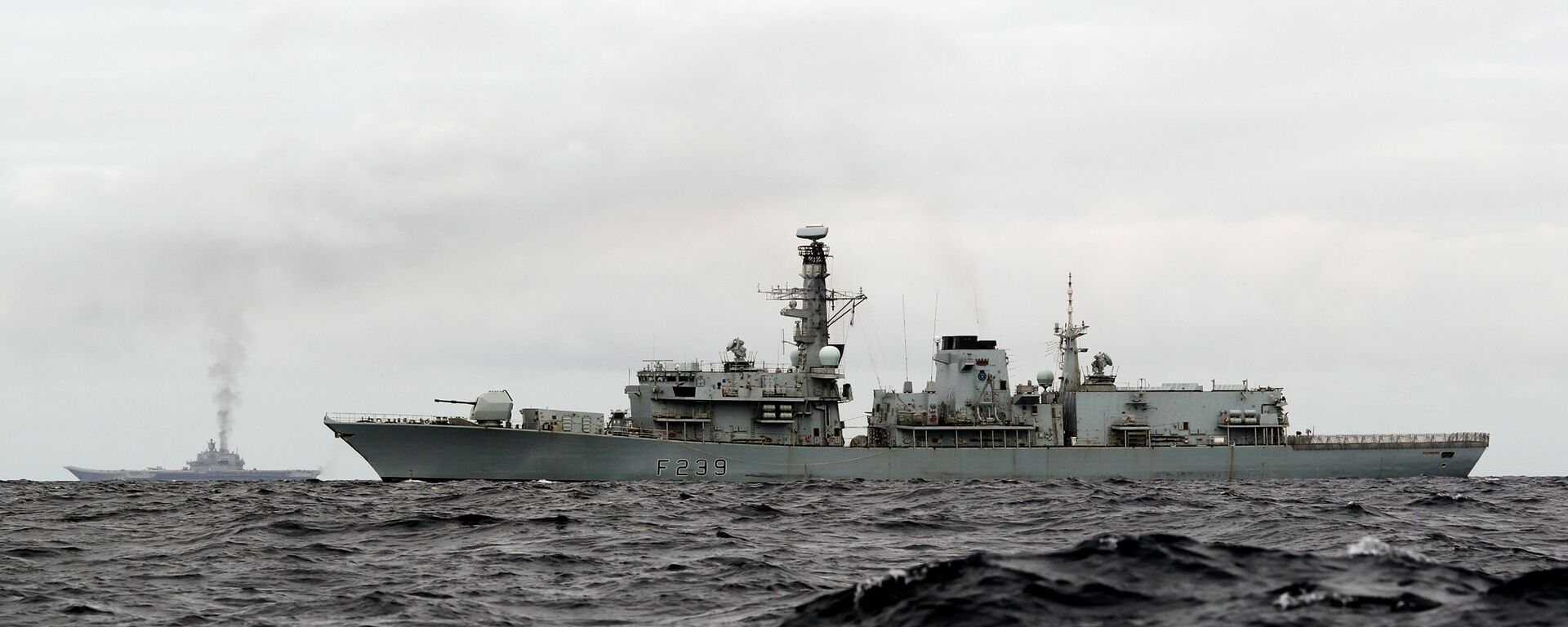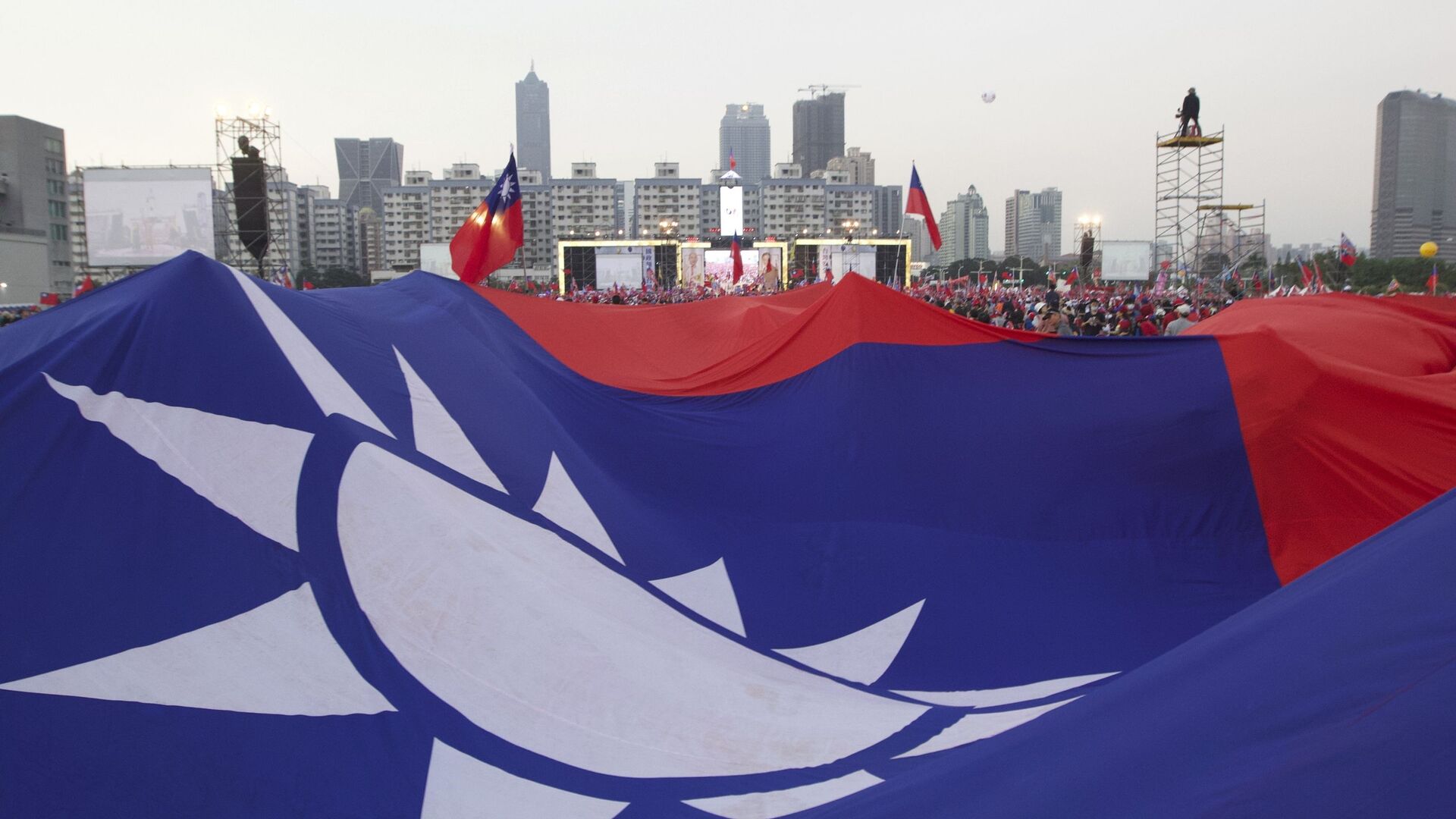https://sputnikglobe.com/20211005/taiwans-tsai-warns-of-catastrophic-consequences-of-chinese-takeover-as-pla-planes-buzz-island-1089684397.html
Taiwan’s Tsai Warns of ‘Catastrophic Consequences’ of Chinese Takeover as PLA Planes Buzz Island
Taiwan’s Tsai Warns of ‘Catastrophic Consequences’ of Chinese Takeover as PLA Planes Buzz Island
Sputnik International
The Biden administration sparked an instant crisis with Beijing by inviting Taiwan’s de facto ambassador to the White House for the president-elect’s... 05.10.2021, Sputnik International
2021-10-05T13:52+0000
2021-10-05T13:52+0000
2023-06-19T12:42+0000
america
china
democracy
tsai ing-wen
authoritarian
taiwan
https://cdn1.img.sputnikglobe.com/img/07e5/08/0a/1083568873_0:160:3073:1888_1920x0_80_0_0_f1ebaa6189f8a42f23c2a2d3ea7476ec.jpg
Taiwan's President Tsai Ing-wen has urged the US to play a stronger role in Taipei’s defence, and warned that Taiwan’s loss of its de facto sovereignty would threaten the US-led “liberal democratic order” in a major way.In a piece for Foreign Affairs, a New York-based magazine published by the Council on Foreign Relations – a highly influential US think tank – Tsai argued that Taiwan “lies at the intersection of contending systems” between Western “democracy” and Chinese “authoritarianism.”The United States has a special responsibility to Taiwan, Tsai hinted, owing to the extensive cooperation between Taipei and Washington in areas ranging from the economy and the promotion of “the liberal democratic order,” to arms sales. At the same time, the president stressed that the island’s military activities, including the purchase mobile anti-ship cruise missiles, as well as plans to create a reserve force separate from the regular army, were all measures “meant to maximise Taiwan’s self-reliance and preparedness” and to “signal” to others that Taipei doesn’t “take our security partners’ support for granted.”Accusing China of a military buildup and of “expansionist behaviour across the Taiwan Strait and in surrounding maritime areas,” Tsai claimed that Beijing has “replaced” its commitment to a “peaceful resolution” of the Taiwan issue “with an increasingly aggressive posture,” ranging from the deployment of warships in the Taiwan Strait to “almost daily intrusions into Taiwan’s southern air defence identification zone,” (ADIZ) whose legitimacy Beijing does not recognise.Cross-Strait Tensions EscalateTsai’s appeal to the CFR’s mouthpiece comes amid the latest escalation of tensions between Beijing and Taipei, with the Taiwanese military “on alert” after detecting well over 100 Chinese aircraft operating in its self-assigned ADIZ in recent days, among them fighter jets and maritime strike bombers. Taiwanese prime minister Su Tseng-chang slammed the deployments as “brutal and barbarian” and accused Beijing of jeopardising regional peace.China ramped up the flights after the US State Department expressed “concern” over Beijing’s military activity near the island, with the Chinese Foreign Ministry warning on Monday that it would take all measures necessary to douse “Taiwan independence” sentiment. Beijing accused Washington of violating the One China Principle and the three China-US joint communiques, and stressed that the drills serve as a warning to both secessionists on the island and their supporters abroad of China’s resolve on the issue.China has also expressed concerns over the ramping up of US and allied military activity near Taiwan in recent days, including the sailing of the HMS Queen Elizabeth aircraft carrier near the island along with the USS Carl Vinson destroyer.Tensions over Taiwan snowballed into one of the most acute hotspots in relations between China and the US almost immediately after President Biden’s inauguration thanks to the decision to invite Taipei’s de facto ambassador in Washington to his swearing in ceremony, and ramping up over a $750 million arms deal, regular US "freedom of navigation" deployments through the Taiwan Strait, and reports that Washington might rename Taiwan’s diplomatic mission and invite the island’s leaders to an upcoming "democracy summit."Taiwan (officially known as the Republic of China) and the People’s Republic of China severed ties in 1949 at the conclusion of the Chinese Civil War, in which communist forces defeated the Kuomintang nationalists and forced them to flee the mainland to the island. Ties between Beijing and Taipei began to improve in the 1980s and 1990s, when economic and informal diplomatic relations were established. China envisions Taiwan’s reunification with the mainland through the ‘One China – Two Systems’ model – an idea that the Kuomintang nationalists generally favour. However, Taiwan’s current ruling party – the centre liberal-left Democratic Progressives, are staunchly opposed to any reunification scenario, and have lobbied Washington to step up its support to prevent the two Chinas from reuniting.
https://sputnikglobe.com/20211004/taiwan-scrambles-jets-after-52-chinese-military-aircraft-fly-near-its-airspace-1089650787.html
https://sputnikglobe.com/20210927/china-slams-uk-for-harbouring-evil-intentions-after-british-warship-sails-through-taiwan-strait--1089451028.html
china
taiwan
Sputnik International
feedback@sputniknews.com
+74956456601
MIA „Rossiya Segodnya“
2021
News
en_EN
Sputnik International
feedback@sputniknews.com
+74956456601
MIA „Rossiya Segodnya“
Sputnik International
feedback@sputniknews.com
+74956456601
MIA „Rossiya Segodnya“
america, china, democracy, tsai ing-wen, authoritarian, taiwan
america, china, democracy, tsai ing-wen, authoritarian, taiwan
Taiwan’s Tsai Warns of ‘Catastrophic Consequences’ of Chinese Takeover as PLA Planes Buzz Island
13:52 GMT 05.10.2021 (Updated: 12:42 GMT 19.06.2023) The Biden administration sparked an instant crisis with Beijing by inviting Taiwan’s de facto ambassador to the White House for the president-elect’s inauguration in January. The People’s Republic considers the island an inseparable part of China destined for eventual peaceful reunification with the mainland.
Taiwan's President Tsai Ing-wen has urged the US to play a stronger role in Taipei’s defence, and warned that Taiwan’s loss of its de facto sovereignty would threaten the US-led “liberal democratic order” in a major way.
In a
piece for Foreign Affairs, a New York-based magazine published by the Council on Foreign Relations – a highly influential US think tank – Tsai argued that Taiwan “lies at the intersection of contending systems” between Western “democracy” and Chinese “authoritarianism.”
Urging countries that recognise “the threat that the Chinese Communist Party poses” to “understand the value of working with Taiwan,” the politician suggested that these nations should “remember that if Taiwan were to fall, the consequences would be catastrophic for regional peace and the democratic alliance system.”
The United States has a special responsibility to Taiwan, Tsai hinted, owing to the extensive cooperation between Taipei and Washington in areas ranging from the economy and the promotion of “the liberal democratic order,” to arms sales. At the same time, the president stressed that the island’s military activities, including the purchase mobile anti-ship cruise missiles, as well as plans to create a reserve force separate from the regular army, were all measures “meant to maximise Taiwan’s self-reliance and preparedness” and to “signal” to others that Taipei doesn’t “take our security partners’ support for granted.”
Accusing China of a military buildup and of “expansionist behaviour across the Taiwan Strait and in surrounding maritime areas,” Tsai claimed that Beijing has “replaced” its commitment to a “peaceful resolution” of the Taiwan issue “with an increasingly aggressive posture,” ranging from the deployment of warships in the Taiwan Strait to “almost daily intrusions into Taiwan’s southern air defence identification zone,” (ADIZ) whose legitimacy Beijing does not recognise.
Pointing to Taipei’s claims to maritime areas in the South China Sea, on top of its territorial disputes with Beijing in the Taiwan Strait and the East China Sea, Tsai suggested that “a failure to defend Taiwan would not only be catastrophic for the Taiwanese [but] would overturn a security architecture that has allowed for peace and extraordinary economic development in the region for seven decades.”
Cross-Strait Tensions Escalate
Tsai’s appeal to the CFR’s mouthpiece comes amid the latest escalation of tensions between Beijing and Taipei, with the Taiwanese military
“on alert” after detecting well over 100 Chinese aircraft operating in its self-assigned ADIZ in recent days, among them fighter jets and maritime strike bombers. Taiwanese prime minister Su Tseng-chang slammed the deployments as “brutal and barbarian” and accused Beijing of jeopardising regional peace.
China ramped up the flights after the US State Department expressed
“concern” over Beijing’s military activity near the island, with the Chinese Foreign Ministry
warning on Monday that it would take all measures necessary to douse “Taiwan independence” sentiment. Beijing accused Washington of violating the One China Principle and the three China-US joint communiques, and stressed that the drills serve as a warning to both secessionists on the island and their supporters abroad of China’s resolve on the issue.

4 October 2021, 12:18 GMT
China has also expressed concerns over the ramping up of US and allied military activity near Taiwan in recent days, including the sailing of the HMS Queen Elizabeth aircraft carrier near the island along with the USS Carl Vinson destroyer.
Tensions over Taiwan snowballed into
one of the most acute hotspots in relations between China and the US almost immediately after President Biden’s inauguration thanks to the decision to invite Taipei’s de facto ambassador in Washington to his swearing in ceremony, and ramping up over a $750 million arms deal, regular US "freedom of navigation" deployments through the Taiwan Strait, and reports that Washington might rename Taiwan’s diplomatic mission and invite the island’s leaders to an upcoming "democracy summit."
Taiwan (officially known as the Republic of China) and the People’s Republic of China severed ties in 1949 at the conclusion of the Chinese Civil War, in which communist forces defeated the Kuomintang nationalists and forced them to flee the mainland to the island. Ties between Beijing and Taipei began to improve in the 1980s and 1990s, when economic and informal diplomatic relations were established. China envisions Taiwan’s reunification with the mainland through the ‘One China – Two Systems’ model – an idea that the Kuomintang nationalists generally favour. However, Taiwan’s current ruling party – the centre liberal-left Democratic Progressives, are staunchly opposed to any reunification scenario, and have lobbied Washington to step up its support to prevent the two Chinas from reuniting.

27 September 2021, 15:04 GMT



